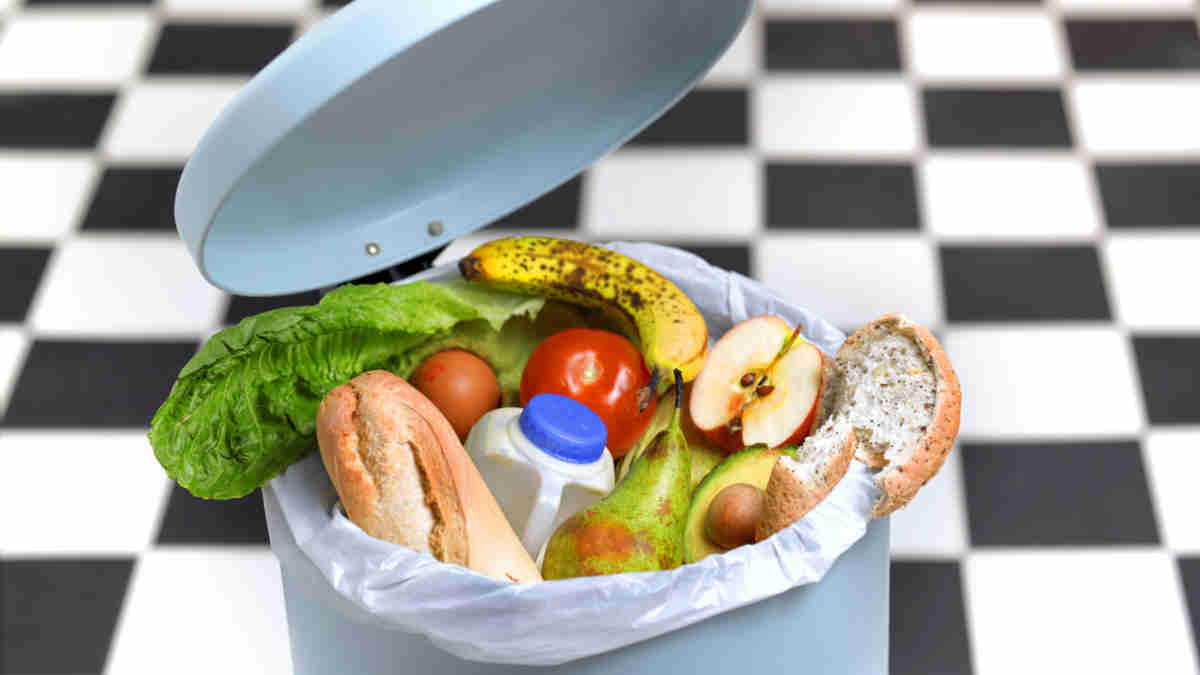Despite economic challenges, dining out remains popular with Aussies
Collins Foods and GYG are gaining rapid grounds as a result
But we must talk about the environmental impact caused by food waste
Despite cost-of-living headwinds impacting households across Australia, dining out seems to remain a significant part of the lifestyle for many Aussies.
Collins Foods’ (ASX:CKF) trading update on Tuesday highlights this trend, as the company not only upheld but bolstered its market presence by opening 17 net new restaurants over the year.
For FY24, Collins reported a robust 10.4% revenue growth to $1,488.9 million. Statutory NPAT soared to $76.7 million, marking a significant increase from $12.7 million in FY23.
The company operates 279 KFC restaurants in Australia, making it the largest franchisee of KFC in the country. (It does not own KFC itself; KFC is globally owned by YUM!).
The strong performance exemplifies the vibrant dining scene in Australia, which was further demonstrated by Guzman y Gomez (ASX:GYG)’s decision to list its shares on the ASX last week.
But beneath this bustling scene, some ethical investors are concerned about the significant food wastage generated by companies running restaurant businesses.
Across the industry, restaurants create massive amounts of food waste each year, squandering not only resources but also exacerbating greenhouse gas emissions, as unused food often ends up in landfills.
According to the United Nations, one third of all food produced is lost or wasted each year, amounting to around 1.3 billion tonnes of food.
This waste isn’t merely an unfortunate byproduct, and the consequences are profound: discarded food contributes significantly to greenhouse gas emissions, equivalent to the output of 42 coal-fired power plants annually.
Landfill produces methane gas
Restaurants, especially full-service establishments with diverse menus and buffets, face particular challenges as the complexity of their offerings often leads to more food being prepared than is ultimately consumed.
Buffets, in particular, must anticipate demand but frequently end the day with surplus food destined for landfill.
This inefficiency not only affects profits but also worsens environmental harm, as discarded food in landfills decomposes and releases methane, a potent greenhouse gas.
Methane is released by food waste primarily due to the anaerobic (without oxygen) decomposition process that occurs when organic matter, such as food scraps, breaks down in landfills.
In terms of its environmental impact, methane is around 28 times more effective than carbon dioxide at trapping heat in the atmosphere over a 100-year period, and even more potent over shorter timescales.
This makes the gas a significant contributor to global warming and climate change.
According to the UN’s Intergovernmental Panel on Climate Change (IPCC), methane is responsible for about 16% of global greenhouse gas emissions.
Australia also grapples with the problem
In Australia, food waste also poses a significant challenge.
According to the National Food Waste Strategy Feasibility Study, the annual cost of food waste to Australia’s economy is approximately $36.6 billion.
Australians discard about 7.6 million tonnes of food annually, amounting to roughly 312kg per person, costing households up to $2,500 per year.
Food waste contributes around 3% of Australia’s annual greenhouse gas emissions.
Producing wasted food also consumes about 2,600 gigalitres of water annually, equivalent to the volume of water in 5 Sydney Harbours.
More than 25 million hectares of land in Australia are used to grow food that ultimately goes to waste, surpassing the area of Victoria.
Households, not restaurants, are in fact the largest contributors to food waste in Australia, accounting for about 30% of the total, which translates to approximately 2.5 million tonnes per year.
Food wastage increases pressure on food prices globally, affecting vulnerable populations who may already be food insecure.
Reducing food wastage therefore is critical to addressing not only access to food for vulnerable populations worldwide, but also climate change.
How to minimise food wastage
FoodBank.org.au has compiled a set of actions we can take to minimise food waste.
1. Adopt a healthier and more sustainable diet: Choose foods from the five core food groups and cut back on processed and packaged foods.
2. Buy only what is needed: Plan your meals and write shopping list. This great habit saves you time, money and makes it easy to organise dinner.
3. Pick “ugly” fruit and vegetables: Choose from the “odd bunch’’ or the “reject fruit and veg” area at your local shop. These odd-shaped fruit and veg are just as healthy and tasty, and once chopped or grated, you can’t tell the difference!
4. Store food wisely: Rotate the food in your fridge, freezer and pantry so the older items are at the front and are used first. Have a look at the “use-by date” and “best before date” as the latter is still safe to eat after the suggested date.
5. Eat Smart: Dish out smaller portions at home or choose entrée size at the restaurant. Freeze left-overs or have them for lunch the day after. Ask for a “doggy” bag to take left overs home after eating out to eat the next day.
6. Put your food waste to use: Instead of throwing away your food scraps, compost them or give them to friends who have chickens, ducks or a worm farm.
7. Support local food producers: By buying local produce, you support family farmers and small businesses in your community. You also help fight pollution by reducing food miles.
8. Share and give away: Donate food that would otherwise be wasted.
ASX companies addressing food waste
On the ASX, there are several companies that are addressing Australia’s landfill problem.
Delorean Corporation (ASX:DEL)
Delorean collects food and organic waste from industrial and agricultural streams in Australia, and processes it for energy production through a natural biological process called anaerobic digestion.
This process produces clean biogas to fuel conventional heat and power generators, and can also be upgraded to mains-grade renewable natural gas for use in the existing gas network.
In February, Delorean announced that it has received a $5 million grant from the Queensland Department of State Development and Infrastructure.
The grant will support the construction, commissioning, and operation of Delorean’s QLD 1 bioenergy facility project.
The funding is part of Queensland’s Resource Recovery Industry Development Program, aimed at supporting projects that reduce landfill waste, minimise stockpiling, and promote job creation in the state.
Cleanaway Waste Management (ASX:CWY)
Cleanaway helps businesses recover food waste through its organics recycling technology.
CWY’s EPA-approved organics recovery facilities help cafes, shopping malls, kitchens, bakeries and other food and beverage businesses turn food waste into high-grade compost and fertilisers.
For bulk food manufacturers and supermarkets, CWY’s food de-packaging technology takes large volumes of food or liquid packaged in aluminium, plastic, liquid paperboard or cardboard, and separates the organic material to be recycled.
Earlier this week, CWY acquired Citywide Waste, a waste and recycling business, for $110 million.
Citywide Waste serves about 1,500 municipal, commercial, and industrial customers in Melbourne, including the Melbourne City Council.
SECOS is a Melbourne outfit that has established itself as a leader in sustainable packaging solutions.
SECOS’ MyEcoWorld products – launched in 2021 – are now prominently featured in 2,300 stores across major Australian retail chains such as Coles and Woolworths.
As the only listed compostable plastics business on the ASX, SECOS has been recognised with the prestigious Silver EcoVadis rating.
SECOS’ biodegradable products primarily utilise various grades of resin, but its core resin grades, particularly those used in the MyEco bag products, are derived from corn starch.
This corn starch comes from a commercial grade of non-GMO corn, ensuring the product is entirely renewable.
SECOS has strategically entered the North American market through partnerships with distributors like Jewett-Cameron Trading Company (NASDAQ: JCTCF), targeting both the United States and Canada.
Now read: SECOS rides high on global trend towards sustainable packaging, eyes American markets
The post The Ethical Investor: As restaurant sector rebounds, it’s time to talk about the impact on food waste appeared first on Stockhead.






















